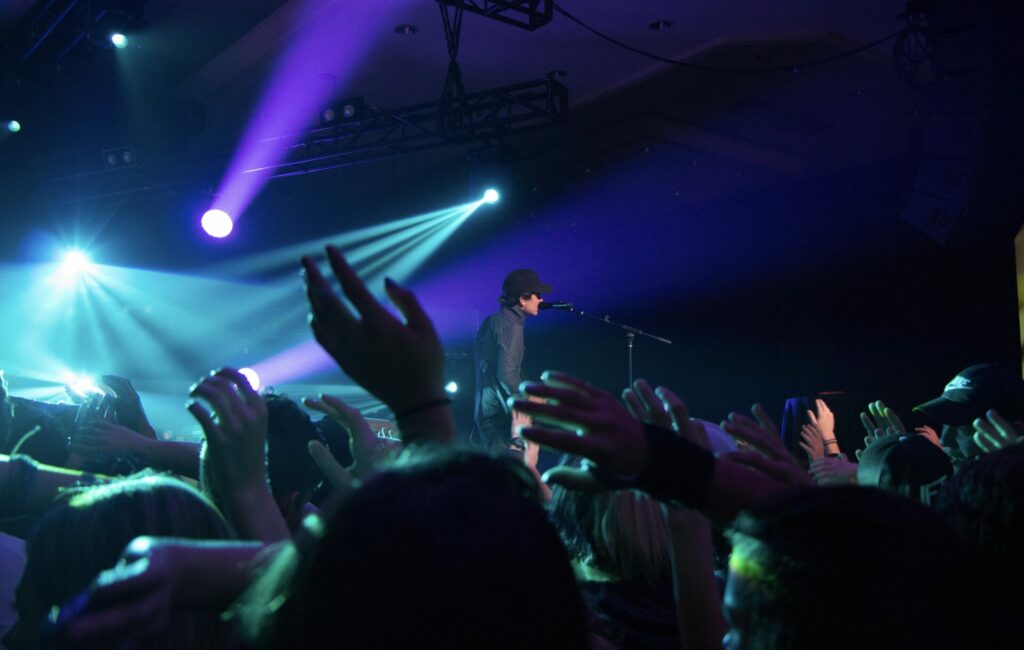Small venues face “permanent closure” without “immediate” government action
The Music Venue Trust (MVT) says there has been a "catastrophic" drop in fans attending gigs amid the 'Plan B' announcement
By Tom Skinner

Grassroots venues are at risk of “permanent closure” due to a “catastrophic” drop in attendance since the government announced its ‘Plan B’ approach in tackling COVID-19.
That’s according to the Music Venue Trust, who claim there has been a 23 per cent decrease in concertgoers attending live shows in such establishments over the course of one week. There’s been up to a 40 per cent drop across the live music industry overall.
The MVT – which acts to protect, secure and improve UK Grassroots Music Venues for the benefit of venues, communities and upcoming artists – cites 140,000 no-shows from ticketholders, leading to a 27 per cent decline in gross income.
Results from a survey conducted by the charity found that the grassroots venues sector faces losses in earnings of almost £2million.
Now, the organisation is calling on culture secretary Nadine Dorries to create a “ring-fenced stabilisation fund” to help weather the storm. It has requested a £1.7million cut of the £1.57billion Culture Recovery Fund.
“This is the busiest time of the year for grassroots music venues, representing more than 20% of their annual income being raised during the party season,” explained Beverley Whitrick, strategic director of the MVT (via Sky News).
“Rapid declines in attendance at this time of year represent an exponential threat to the whole sector, and losses of this magnitude cannot be sustained without throwing hundreds of music venues into crisis mode and at risk of permanent closure.”
She continued: “A ‘no show’ isn’t just lost ticket income, it’s lost bar take and excess staff costs.”
The charity also found that ticket sales have dropped by 27 per cent. Meanwhile, 61 per cent of venues surveyed said they had to cancel at least one scheduled event over the course of the week spanning December 6 to December 13. The main reason for this was a musician or a member of their touring crew testing positive for COVID (35.6 per cent).
The MVT said that 284 out of its network of 918 UK grassroots venues participated in the survey.
MVT chief executive Mark Davyd said: “It feels like we are back exactly where we were in March 2020, when confusing government messaging created a ‘stealth lockdown’ – venues apparently able to open but in reality haemorrhaging money at a rate that will inevitably result in permanent closures unless the government acts quickly to prevent it.”
The Music Venue Trust is calling for “immediate” action from the government, warning that there’s a “risk of permanent closure” without it.
“We have been here before,” explained Davyd. “This time the government already has all the tools in place that it needs to manage this impact and prevent permanent closures in the grassroots music venue sector.
“The Culture Recovery Fund can be swiftly adapted to mitigate this economic impact, the money is already there and waiting, we just need the Secretary of State to act quickly. The government previously used Business Rate suspension and VAT cuts to support and sustain the sector.”
He added: “We don’t need to spend time considering the situation; the government already knows what can be done and can choose very quickly to do it.”
People in England are now required to prove their COVID status in order to gain entry to nightclubs, indoor unseated venues with more than 500 people, unseated outdoor venues with more than 4,000 people, and any venue with more than 10,000 people. It comes after COVID passes were voted through in the Commons yesterday (December 14).
Additionally, bars and pubs with a dancefloor will need to check customers’ COVID status – but only after 1am, per the government’s website. This also applies to punters who entered the premises before that time and remain there until the early hours.
Over the weekend, the MVT’s Mark Davyd called for “a calm and reasoned debate about SAGE modelling of perceived hospitality risks” around coronavirus.
“Not least because repeatedly trying to tackle Covid through the lens of hospitality restrictions is a failed policy,” he continued. “We need an effective policy response that works. For everyone.”
The latest restrictions, which were triggered as part of the government’s ‘Plan B’, come amid a rise in cases of the new Omicron variant of coronavirus. Yesterday, the UK recorded 59,610 new COVID infections and 150 deaths within 28 days of a positive test.
Last week (December 10) face masks became mandatory in certain settings, including cinemas, theatres, shops and on public transport, in a bid to curb the spread of the strain.
